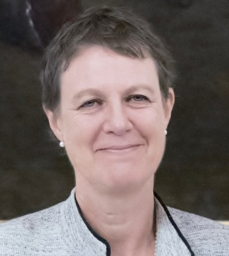Tania Li

dates de séjour
discipline
Fonction d’origine
Institution d’origine
pays d'origine
lien internet
projet de recherche
Socio-spatial and environmental (in)justice and citizenship in rural areas of the global South: A comparative perspective
The project has been co-designed with members of the Research group Savoirs, Environnement, Sociétés (UMR-SENS) and with members of the "Pole Foncier" of Montpellier. The focus of the research is socio-spatial and environmental justice. This is a core theme of UMR-SENS and a topic of global interest and importance, notably in the context of the SDGs and action on climate change. The goal of the research is to explore how a sense of justice is conceptualized and mobilized, and how justice may be achieved or denied in diverse contexts in the global south.
The scientific purpose of the project is to advance a novel conceptualization of socio-spatial and environmental justice that is grounded in the empirical findings of researchers with experience in diverse contexts in the global south. Core elements of this conceptualization include a focus on access to land as a key dimension of justice, and an explicit focus on how justice relates to different conceptualizations of the state and citizenship.
Our aim is to draw together a group of scholars who will put into dialogue their research findings from different contexts where issues of socio-spatial and environmental justice arise. Three principal questions will guide the comparative inquiry. (i) What is 'justice' from the point of view of our interlocutors? (ii) How do local actors seek a response to socio-spatial and environmental injustices? (iii) What is the role of the state in resolving problems of injustice?
A secondary project, potential collaboration with MUSE scholars (notably at CIRAD and UMR-MOISA) who are working on socio-spatial justice in Indonesia’s oil palm sector will be explored. Two potential themes for collaboration are socio-spatial and environmental justice in zero-deforestation committments ; and the justice implications of certification for oil palm smallholders.
biographie
University Professor at the Department of Anthroplogy of the University of Toronto, fellow of the Royal Society of Canada (FRSC), she is a specialist of sociocultural anthropology and of the South and Southeast Asia.
Her early research in Southeast Asia concerned urban cultural politics in Singapore. Since then she has focused on culture, economy, environment, and development in Indonesia’s upland regions. She has written about the rise of Indonesia’s indigenous peoples’ movement, land reform, rural class formation, struggles over the forests and conservation, community resource management, state-organized resettlement and the problems faced by people who are pushed off the land in contexts where they have little or no access to waged employment.
Her book "The Will to Improve" (Duke University Press, 2007) explores a century of interventions by colonial and contemporary officials, missionaries, development experts and activists. "Powers of Exclusion" (National University of Singapore Press, 2011) examines agrarian transition to see what happens to farmers’ access to land in the context of competing land uses (e.g. conservation, urban sprawl, plantation agriculture). Her prize-winning book "Land’s End" (Duke University Press, 2014) tracks the emergence of capitalist relations among indigenous highlanders when they enclosed their common land. "Plantation Life" (Duke University Press, 2014) explores the forms of social, political, cultural and economic life that emerge in Indonesia’s oil palm plantation zone.
Li, T. Commons, co-ops, and corporations: assembling Indonesia’s twenty-first century land reform. The Journal of Peasant Studies 1-27, 2021. DOI 10.1080/03066150.2021.1890718
Li, T. Epilogue: Customary Land Rights and Politics, 25 Years On, The Asia Pacific Journal of Anthropology 2020, 21 (1), 77-84
Li, T. Politics, Interrupted, Anthropological Theory, 2029, 19(1):29-53






